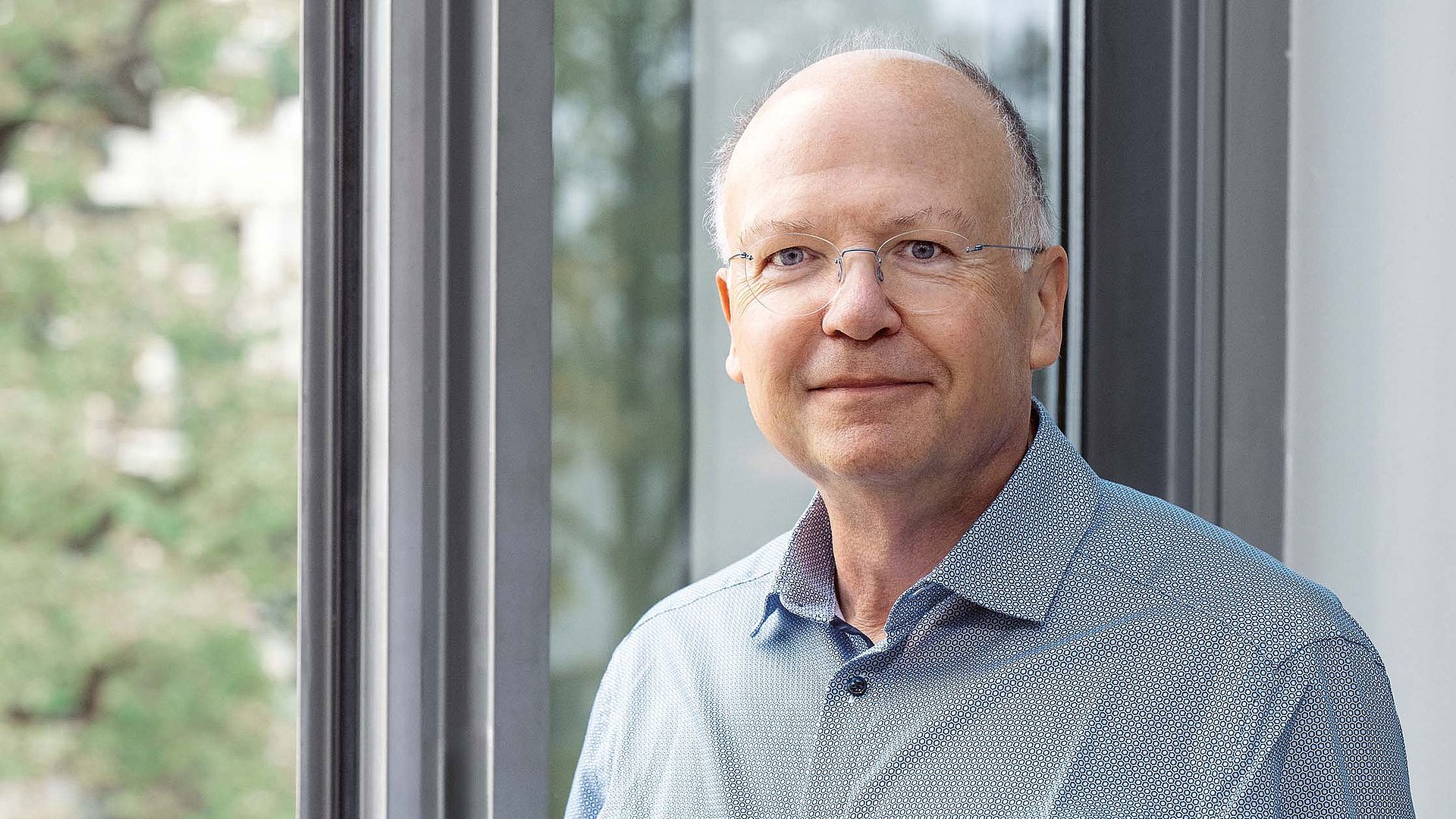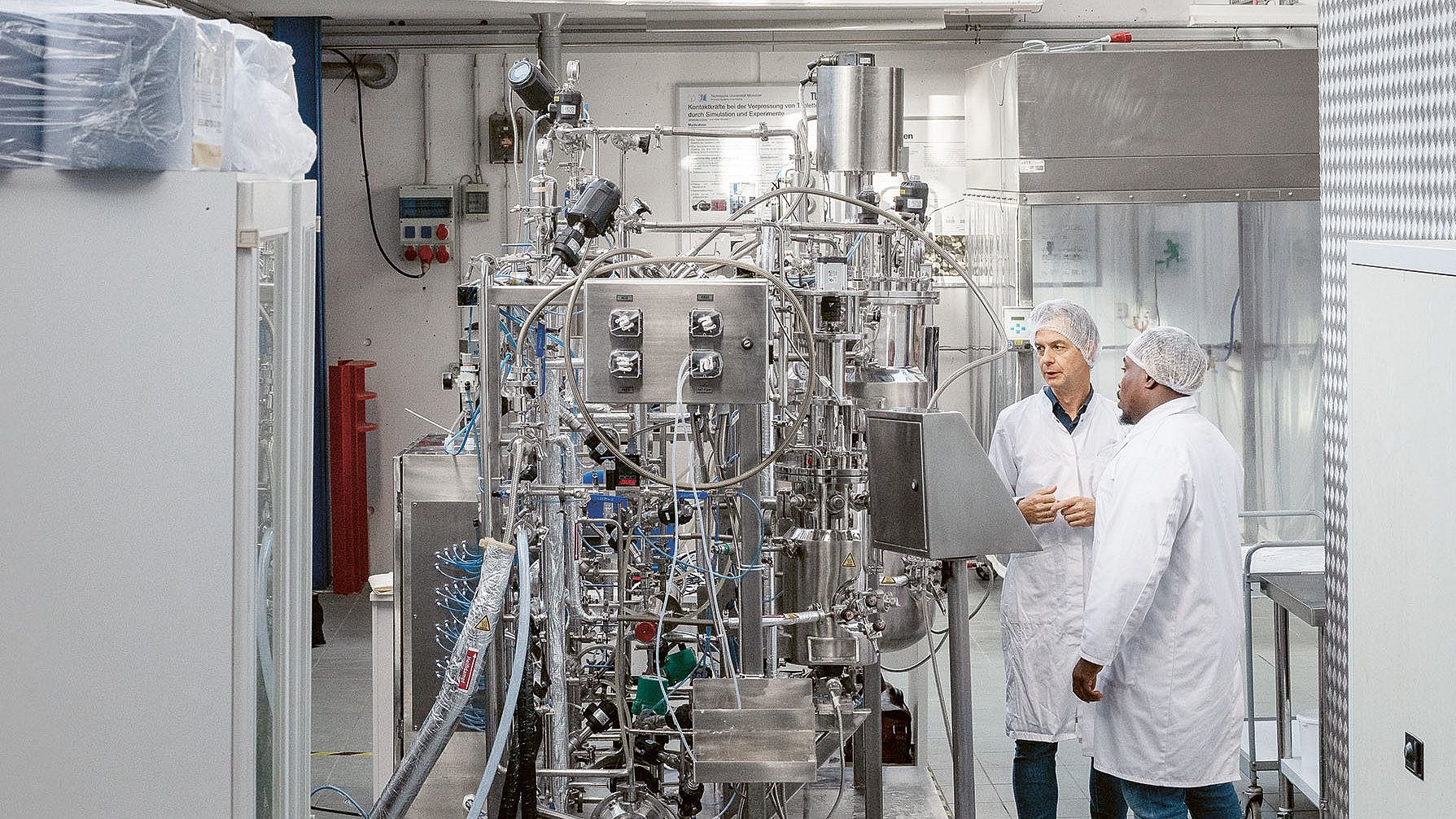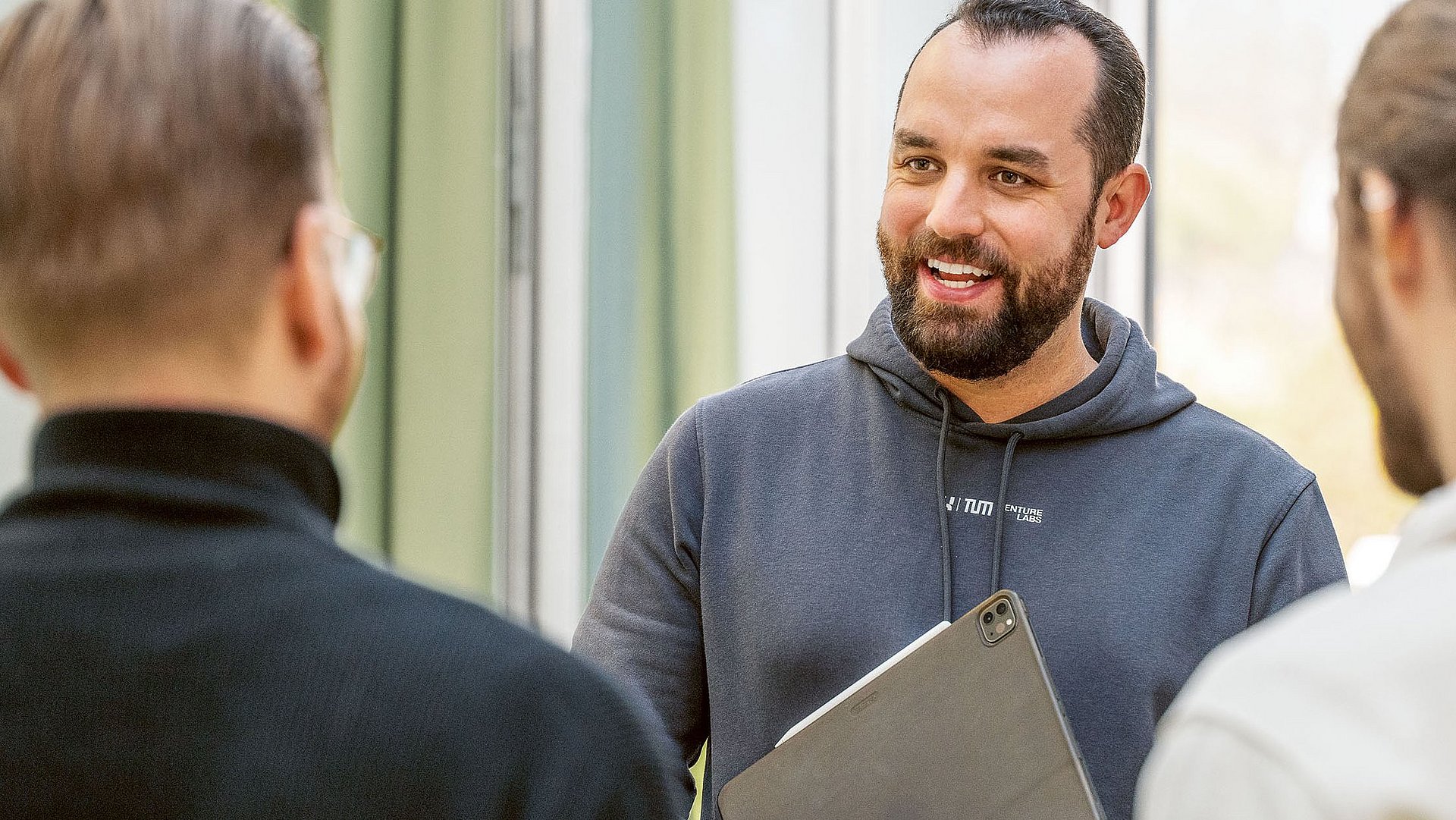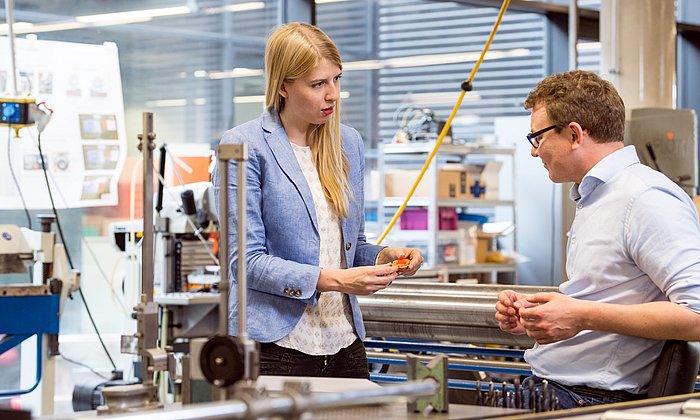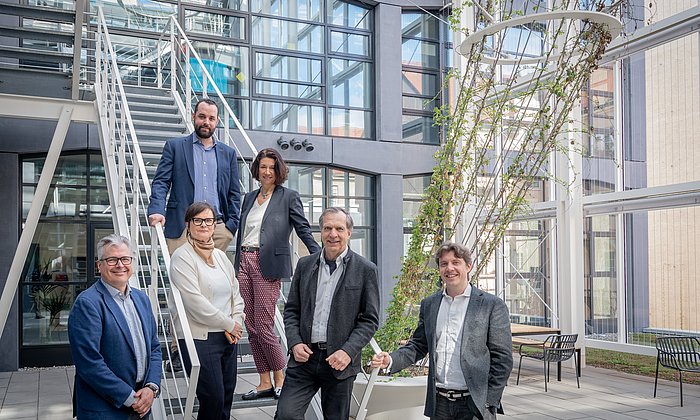TUM Venture Lab Food / Agro / Biotech
Breeding ground for biotech start-ups
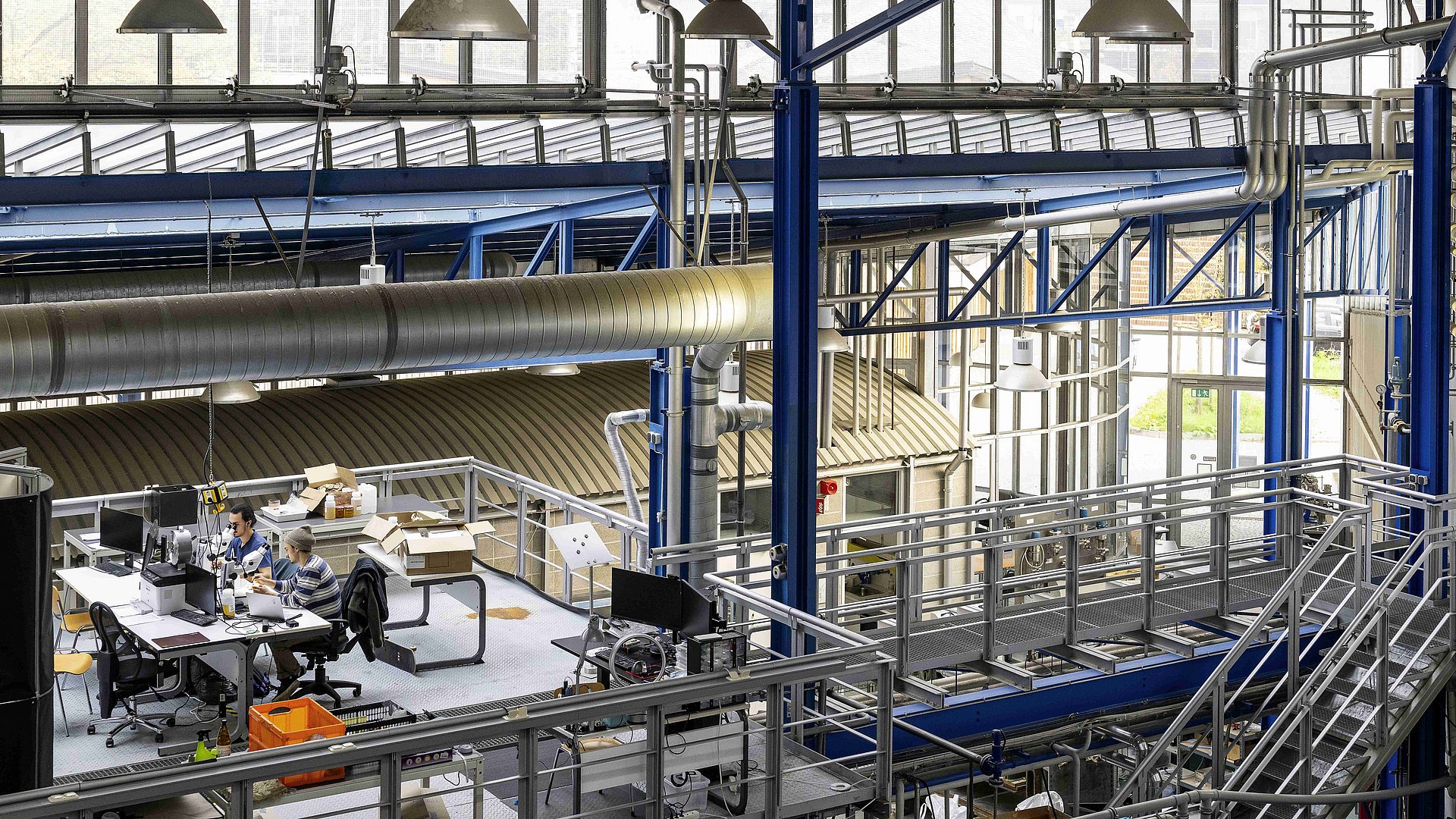
A source of ideas, a meeting place, a co-working space, a high-tech experimentation facility—the TUM Venture Lab Food / Agro / Biotech (FAB) does it all. Situated on the Weihenstephan Campus, it is part of the TUM Food & Agro Center for Innovation and Technology (FACIT). Venture Lab FAB was one of the first of twelve Venture Labs established to date and has a clear mission: to support students and researchers in refining their ideas, with the aim of developing and successfully launching a product or service.
Many have succeeded in doing just that. In fact, the Venture Lab FAB has supported 120 start-ups to date; the combined total for all Venture Labs is over 500. “We provide support throughout the entire start-up process, from generating ideas and acquiring funding or seed capital to the production of prototypes,” says Prof. Dr. Arne Skerra, Academic Director.
“Together with TUM Entrepreneurship and TUM Start-up Consulting, we foster an exchange of ideas, help with developing business plans including market analyses, assist with patent-related issues, and facilitate contacts with industry and investors.” Many events at the Venture Lab provide opportunities to share insights and network, from the FAB Talks series to regular founder meet-ups and hackathons, while monthly open house days offer a low-threshold opportunity for people interested in Venture Lab FAB to find out more about its work.
The Venture Lab FAB features facilities that open many different doors. Situated at the heart of TUM’s Weihenstephan Campus, it is a creative space with unparalleled infrastructure. On the ground floor, a string of laboratories sit shoulder to shoulder. Behind each door, start-up teams are hard at work, drawing on outstanding equipment and devices for use in every phase from research and development to prototype construction. The focus topics at FAB are biosciences and -technology, agritech, forest management, food and beverages, and production and processing technologies. It also gives fledgling companies in the food sector access to specialist laboratories in line with specific hygiene standards.
With BayWa AG and Dr. Oetker Nahrungsmittel KG, two well-known companies from the agricultural and food sectors are actively contributing their expertise and promoting the ecosystem on a non-profit basis. They advise start-up teams, establish contacts and are actively involved in events.
Vegan fish alternative makes a splash on the market
The father-daughter team behind Koralo developed a product that has since been successfully launched in South Korea: a vegan fish alternative made from microalgae and fungal mycelium, which are fermented together.
Dr. Guido Albanese studied chemistry at TUM and worked in industry for many years. During a stroll along the beach, he and his daughter Sina came up with the idea of using seaweed to create a delicious, healthy food product. “We worked through the entire process at the Venture Lab, from the idea to the finished product, and benefited from various services in every phase,” says Albanese. To begin with, the team primarily drew on the lab facilities to test and refine their process. As the project progressed, they benefited from the extensive network within TUM. “We collaborated closely with three professorial chairs,” says Albanese. “Not only did they significantly enhance our expertise, they also provided valuable insights into the potential benefits of our specific product.”
In total, over a dozen students supported the start-up team. Some wrote their bachelor’s theses on the project, while others completed work placements. Everyone benefited from this arrangement; the students gained insight into the process of creating a deep-tech product, while the team sourced ideas and cutting-edge insights from the students.
In addition to scientific and technological input, business development was another key consideration for Koralo . Albanese connected with well-placed experts through the XPLORE and XPRENEURS incubator programs offered by UnternehmerTUM.
Following the product’s successful launch in South Korea, the team refined the fish alternative, optimizing it for the demanding South Korean market. The first customers were restaurants, and major clients are now set to follow. The team also hopes to make inroads into the US market.
Until then, their work at the Venture Lab will continue, focusing on continuous product and process improvements along with scalability. A pilot system with a 100-liter fermenter has now been established in the TUM FACIT Machine Hall. Following its successful launch, the company is now using the infrastructure as a tenant.
Co-locating research and entrepreneurship
The close links with professorial chairs and scientific institutions of the TUM School of Life Sciences present an immense strategic advantage. These links help to generate ideas that can be developed in the Venture Lab FAB and also give entrepreneurial teams access to lab facilities and equipment. In the vast TUM FACIT Machine Hall, science and entrepreneurship are closely intertwined. Many of the systems are operated jointly with professorial chairs. In some cases, companies are also integrated.
An omnipresent spirit of optimism is visible and tangible in the Venture Lab. During our tour with Managing Director Dr. Roman Werner, not every laboratory is occupied. “Many teams only arrive late in the afternoon, after their lectures or after finishing work at the university ,” he explains. Some people are sitting at their laptops, tinkering with software; others are configuring research equipment or preparing to conduct tests. Every one of them is personally acquainted with Werner. He asks one how their project is progressing and invites them for a coffee and a chat later on. He wishes another founder luck with their application for an EXIST Business Start-up Grant. TUM Start-up Consulting support teams with applications for state funding programs like EXIST.
Networking is also writ large at the Venture Lab-on campus, throughout TUM and beyond, including with state funding agencies, political stakeholders, foundations and private enterprise. For example, the Hans Eisenmann Forum recently held a pitch event at TUM, shining a spotlight on start-ups. The winning team had developed a fully automatic process for identifying and sorting damaged potatoes, which small and medium-sized agricultural enterprises could retrofit into their existing facilities and systems.
EIT Food, Europe’s largest innovation network on the topics of food, nutrition, and agriculture, is a key institutional partner. The Food Entrepreneurship Made in Bavaria project is a joint endeavor. In this project, TUM Venture Labs and EIT Food are working with the Bavarian State Ministry of Economic Affairs to support innovative ideas and start-ups that aim to protect the environment and extract maximum value from available resources.
Innovations call for the courage to take risks
During our tour, we bump into Nathalie Stellwag, a management and technology graduate from TUM. She is working on a technique to turn brewer’s grains — a by-product of beer production — into a high-protein milk alternative. Dr. Mahmoud Masri, a biochemist, is developing an environmentally friendly alternative to palm oil. He processes yeasts to produce oil in (large-scale) bioreactors, which can help to reduce the damaging production of palm oil.
Nobody can say whether these entrepreneurs, and the many others like them, will make it to market. Even brimming with brilliant ideas and enthusiasm, entrepreneurs can sometimes run out of road in the start-up founding process. A common German perspective is to then consider such outcomes as “failures” — a view of which Roman Werner is critical. In the USA, he argues, things are very different; such outcomes are considered an opportunity to gain experience. And ultimately, most entrepreneurs are not dissuaded if an idea does not generate revenue. Instead, they focus their attention on a new topic and try again. “We need to adopt a more risk-friendly mindset,” says Roman Werner. Compared with the USA, Germany also attracts considerably less venture capital.
TUM, in conjunction with UnternehmerTUM, offers the best conditions for start-ups in Europe, as evidenced by its position at the top of the Financial Times’ ranking of Europe’s Leading Start-Up Hubs. Two contributing factors are the outstanding infrastructure and the fact that entrepreneurship courses are securely integrated into all study programs. Other international media outlets have also rated the ecosystem fostered by TUM and UnternehmerTUM as outstanding, even drawing parallels with Silicon Valley. “We weren’t even allowed to enter a nationwide competition currently underway for entrepreneurship centers—because we’re the role model,” grins Werner.
- Directly anchored in the TUM Schools, the TUM Venture Labs are an evolution of the highly successful services offered by TUM UnternehmerTUM. In the early 2000s, TUM became one of the first universities in Germany to actively support spin-offs and incorporate entrepreneurship content in its study programs.
- A short video gives an insight into the work of the TUM Venture Lab FAB.
- TUM's offers for those interested in founding a company can be found at TUM Entrepreneurship.
- An article from the first issue of the new TUM Magazine.
This article was published in the 01/2025 issue of the new TUM Magazine.
Technical University of Munich
- Tina Heun-Rattei
- Tina.Heun-Rattei@tum.de
- 08161 71 5016
Contacts to this article:
TUM Venture Lab FAB
Dr. Roman Werner
Managing Director
Maximus-von-Imhof-Forum 2
85354 Freising
Mail
